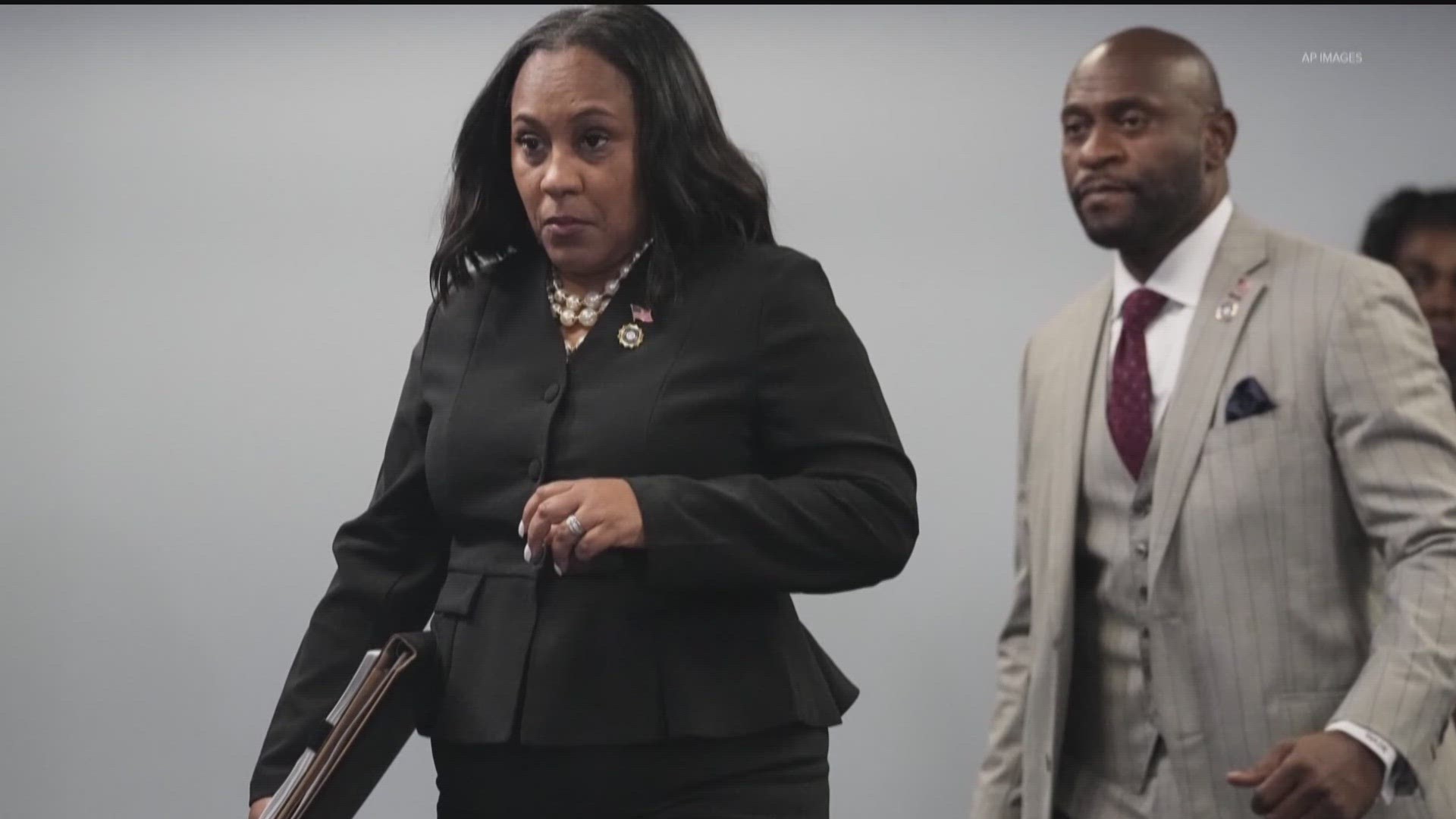ATLANTA — Fulton County District Attorney Fani Willis and special prosecutor Nathan Wade confirmed they started a 'personal relationship' after he was appointed to manage her Trump election interference case. Yet, Willis argued that attempts to disqualify them from prosecuting former President Donald Trump and 14 others over it are without merit.
In the 176-page document, Willis rejected claims that she misused taxpayer funds to financially benefit her and Wade. 11Alive obtained a copy of the response from the Fulton County District Attorney's Office.
"To be absolutely clear, the personal relationship between Special Prosecutor Wade and District Attorney Willis has never involved direct or indirect financial benefit to District Attorney Willis," the filing states.
Friday's filing came in response to a motion from Trump codefendant Mike Roman, seeking to remove the prosecutors from the case. Roman alleged that Wade and Willis were engaged in an improper romantic relationship and misused taxpayer funds. Attorneys for Trump and codefendant Bob Cheeley joined Roman's motion to have the prosecutors disqualified and the case thrown out.
Willis argued the allegations against her and Wade were "salacious" and meant to garner media attention, but failed to prove that they should be removed from the case.
"Georgia courts have held as much for decades, in both civil and criminal contexts. Personal relationships among lawyers — even on opposing sides of litigation — do not constitute impermissible conflicts of interest," the DA's office said in Friday's filing.
Willis and Wade were friends since 2019, but the two were not involved in a personal relationship when Wade was appointed special prosecutor on Nov. 1, 2021, according to the DA's office and a sworn affidavit from Wade included in Friday's response.
"In 2022, District Attorney Willis and I developed a personal relationship in addition to our professional association and friendship," Wade said.
Credit card statements submitted in Wade's ongoing divorce case purportedly show that he paid for airline tickets to Miami and San Francisco for himself and Willis between 2022 and 2023. Wade also paid for hotels and cruises around the same time.
Roman's legal team alleged that Willis financially benefited because Wade used money earned as part of the election case to pay for the trips they took.
In Friday's court filing, Willis asserts that there was no "joint or shared finances or financial accounts" between her and Wade.
"Financial responsibility for personal travel taken is divided roughly evenly between the two, with neither being primarily responsible for expenses of the other, and all expenses paid for with individual personal funds," the motion reads.
Fulton County Superior Court Judge Scott McAfee set a Feb. 15 hearing on the motions. The DA's office seeks to have the motion dismissed without a hearing.
Ashleigh Merchant, Roman's attorney, subpoenaed Willis, Wade, and other employees in the DA's Office to testify at that hearing. The DA's office said Friday that it plans to fight those subpoenas.
Merchant responded to Willis in court Friday afternoon, saying a hearing was still needed because the DA's office has not been as "candid and transparent" as they alleged. Merchant said she and Roman's other attorneys have the right to cross-examine Willis, Wade, and other state witnesses.
Two legal experts who spoke with 11Alive took different views of how Willis' filing will affect the case.
Attorney Darryl Cohen, who previously represented Trump codefendant Trevian Kutti but is no longer involved with the case, said he thought Willis and Wade would not be disqualified.
"I think that the judge will look at it and he may — obviously he may do anything — but if I were to guess he would say this is not going to rise to 'you having to disqualify yourself or Nathan Wade but you guys need to be aware that you're under the hardest microscope ever,'" said Cohen.
Georgia State University College of Law professor Clark Cunningham said it would be premature to predict whether Willis will ultimately be disqualified, but reiterated his earlier call for Willis to step down to avoid any undue delays in the case.
"I do not think this disqualification matter is going to be resolved at the hearing on Feb. 15 or anytime soon thereafter," he said. "I think this is going to be a very very complicated."
Roman's motion also sought to dismiss the indictment altogether. Cohen and Cunningham both agreed that was unlikely.
"No, I don't see this as being thrown out for that reason," said Cohen.
Cunningham agreed.
"I think most legal experts are of the view that the arguments that are being made to dismiss the indictment...are not likely to succeed," said the attorney.

